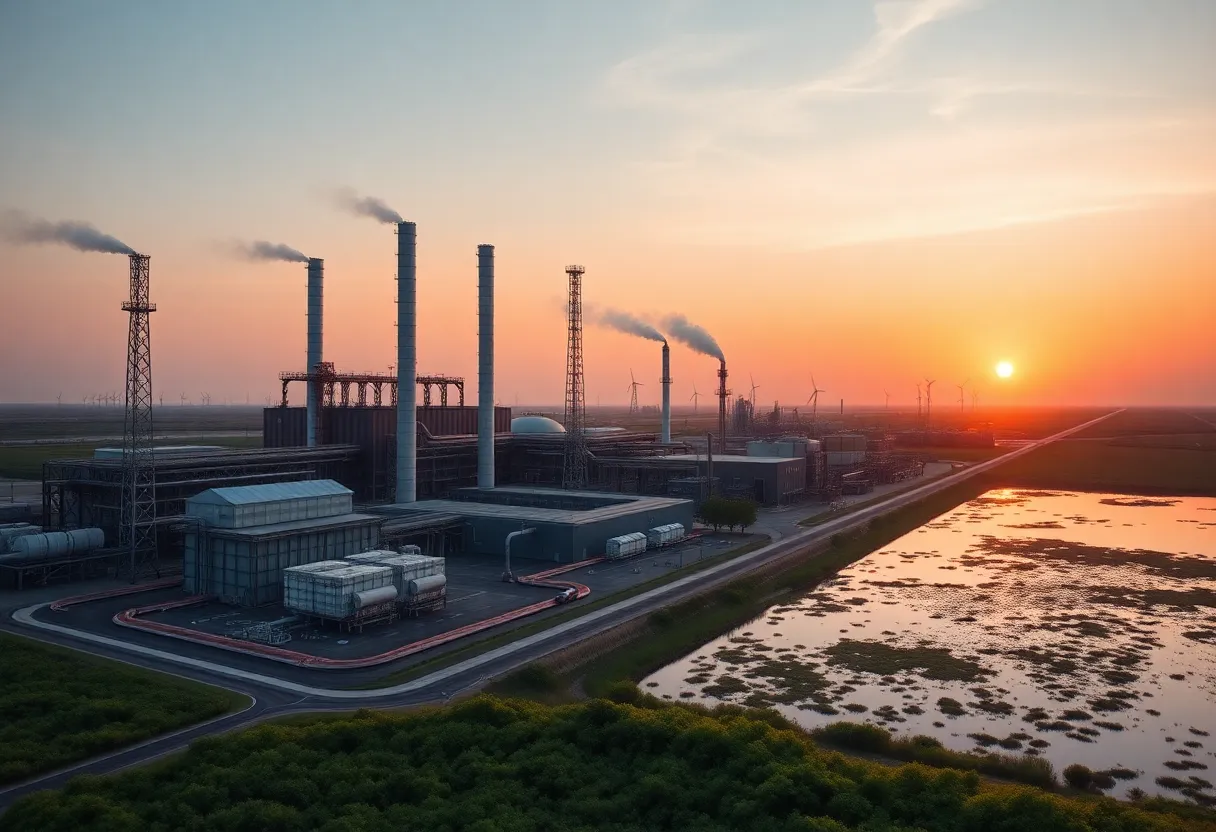News Summary
Louisiana is at a legislative crossroads as it implements Carbon Capture and Sequestration (CCS) technology, which is crucial for its energy future. Despite strong private investment, some lawmakers are proposing restrictions that could impede CCS projects, raising concerns about safety and environmental impacts. The state’s efforts to enhance energy independence through CCS face mixed political support, especially in communities concerned about potential risks. The outcome of ongoing legislative discussions will significantly influence the trajectory of CCS technologies in Louisiana.
Louisiana is facing legislative challenges as it embraces Carbon Capture and Sequestration (CCS) technology, a pivotal element in the state’s energy future. As developments in this field surge, some lawmakers are proposing restrictions that could halt CCS projects, which have already garnered over $20 billion in private investments, significantly impacting the local economy and job market.
Louisiana has long been a cornerstone of the U.S. energy sector, with a robust workforce and rich natural resources. The state is now pivoting towards a new energy landscape, focusing on innovations like CCS, which allows for the capture and secure storage of carbon dioxide emissions from industrial sources. This technology has been viewed as a complement to Louisiana’s existing oil and gas industries, further solidifying its position in the energy market.
Since the early 1990s, Louisiana has positioned itself as a favorable location for CCS, bolstered by its geological attributes and well-established infrastructure that facilitate CO2 injection and storage. In recent years, significant investments have flowed into the state, with notable projects including a $4.5 billion clean energy complex in Ascension Parish spearheaded by Air Products, and a $200 million CCS project in Vermilion Parish involving CF Industries, EnLink, and ExxonMobil. These investments are poised to create thousands of jobs and bolster the state’s economy.
In 2024, Louisiana received permitting authority over Class VI wells, a crucial step in streamlining regulatory processes associated with CCS projects. Major corporations like Shell, Exxon Mobil, and Venture Global are making strides in securing the necessary permits to advance their CCS initiatives as part of the broader goal of enhancing energy independence in the United States.
Despite the financial and environmental potential of CCS, public perception remains a significant hurdle. Misconceptions surrounding the safety and environmental impacts of CCS have arisen, particularly among residents in communities heavily impacted by industrial pollution. This concern is especially pronounced in predominantly Black neighborhoods within “Cancer Alley,” where long-standing environmental issues have raised fears regarding new industrial activities. Critics voice concerns about potential risks, such as earthquakes, groundwater contamination, property rights, and eminent domain implications related to CCS installations.
The political landscape around CCS is shifting as legislative discussions unfold. In April 2025, some Republican lawmakers expressed opposition through proposed bills aimed at imposing moratoriums or outright bans on CCS projects. These measures are partly driven by constituents’ apprehensions regarding safety and local effects. However, support for CCS remains strong among certain officials, including those from the Louisiana Department of Energy & Natural Resources and Economic Development, as well as Governor Jeff Landry.
While legislative deliberations present a mixed picture, the overarching narrative reveals a complex dichotomy of support and opposition. Some Republican politicians advocate for CCS, suggesting a possibility of bipartisan engagement in discussions surrounding CCS technology. Legislative outcomes will play a crucial role in determining both the future of CCS in Louisiana and the degree of community engagement in decision-making processes related to these projects.
As the state navigates the intricacies of CCS development amidst concerns from various stakeholders, the continuing discourse will heavily influence public perception, regulatory frameworks, and ultimately, the trajectory of CCS technologies in Louisiana. The successful integration of CCS into the state’s energy portfolio depends on addressing the legislative challenges and fostering a comprehensive understanding of the technology and its implications among the populace.
Deeper Dive: News & Info About This Topic
- BIC Magazine: Louisiana Carbon Capture Investments
- Wikipedia: Carbon Capture and Storage
- Louisiana Illuminator: Carbon Capture Developments
- Google Search: Carbon Capture Legislation Louisiana
- Reuters: US Carbon Removal Hub Funding
- Encyclopedia Britannica: Carbon Capture
- Energy Law Blog: Louisiana CCS Legislation
- Google Scholar: Carbon Capture Louisiana
- NOLA: Letters on Carbon Capture
- Google News: Carbon Capture NOLA

Author: STAFF HERE NEWORLEANS WRITER
The NEW ORLEANS STAFF WRITER represents the experienced team at HERENewOrleans.com, your go-to source for actionable local news and information in New Orleans, Orleans Parish, and beyond. Specializing in "news you can use," we cover essential topics like product reviews for personal and business needs, local business directories, politics, real estate trends, neighborhood insights, and state news affecting the area—with deep expertise drawn from years of dedicated reporting and strong community input, including local press releases and business updates. We deliver top reporting on high-value events such as French Quarter Festival, New Orleans Jazz & Heritage Festival, and Essence Music Festival. Our coverage extends to key organizations like the New Orleans Chamber of Commerce and Greater New Orleans, Inc., plus leading businesses in energy, healthcare, and education that power the local economy such as Entergy, Ochsner Health, and Tulane University. As part of the broader HERE network, including HEREShreveport.com, we provide comprehensive, credible insights into Louisiana's dynamic landscape.

